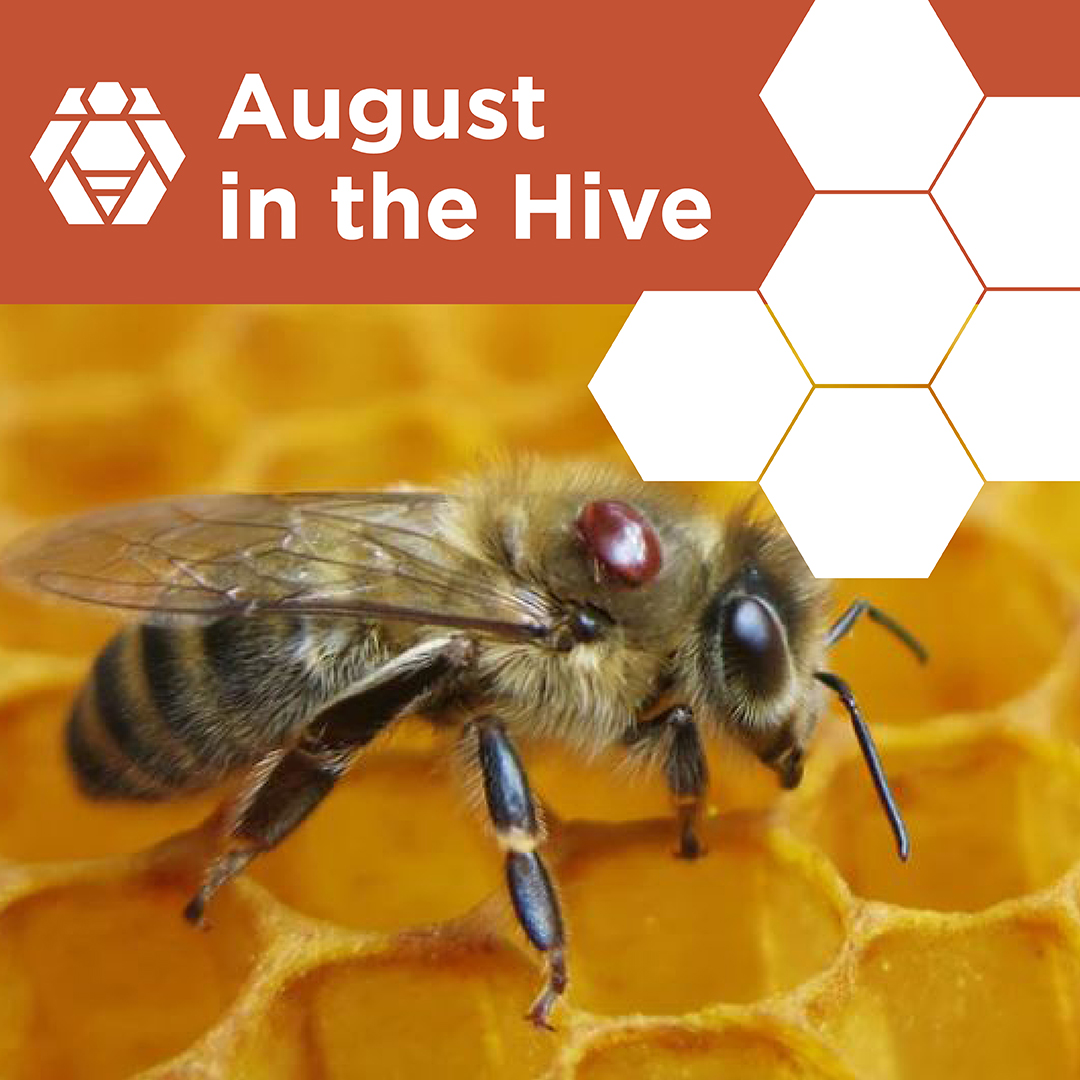
We hope you’ve been enjoying the delicious honey your bees have been making throughout these past summer months! That nectar flow will continue as we still have a few more weeks of warm weather ahead! Collect as much as you can before the nectar flow begins to slow down a bit once we reach September.
As the golden rod starts blooming over the next few weeks it will give your honey a darker color and a more intense flavor. If you enjoy the light colors and flavors of spring you will want to harvest honey sooner rather than later.
During your hive inspections, if you’ve encountered a varroa mite infestation, you’ll want to get it under control as soon as possible to save your colony. Varroa mites are one of the biggest threats to honey bee pollination as they feed on bee larvae and pupae, resulting in deformation of bees’ wings and bodies when they develop and emerge as adults. They can also feed on adult bees. When varroa feeds, bee colonies deteriorate, resulting in a reduction of pollination necessary for Michigan’s fruit and vegetable production.
If untreated or treated ineffectively, bee colonies can fail, causing economic losses to beekeepers, potentially impacting farms and food production. Effective varroa control will help reduce colony loss and avoid potential spread of infectious disease among honey bee colonies.
In 2022, The Honey Bee Health Coalition released its 8th edition of the “Tools for Varroa Management Guide.” With the input from an expert team of beekeepers, entomologists, extension agents, apiary inspectors, and federal regulators, the guide explains practical, effective methods for beekeepers to control varroa infestations, including chemical and non-chemical controls. This is a free resource and can be downloaded here.
Varroa mites are in every hive. It is important to perform a mite wash to determine the number of mites in your hives. Varroa mites are vectors for over 20 known viruses that will affect your bees. It is important to treat for Varroa mite this time of year because the bees raised now will be raising your winter bees.
Other than being on the lookout for mites, enjoy the homestretch of honey collection as bees will soon shift their focus on pollen collection for the upcoming winter and early spring.
As the bees gear up for winter it is important to maintain low mite loads. Bees will also need ample pollen for raising strong winter bees. They will also need pollen stored for when winter breaks next spring. As you are checking your hives ensure they are storing pollen and making bee bread. if your hive does not have a frame or two of stored pollen consider providing a pollen substitute.
